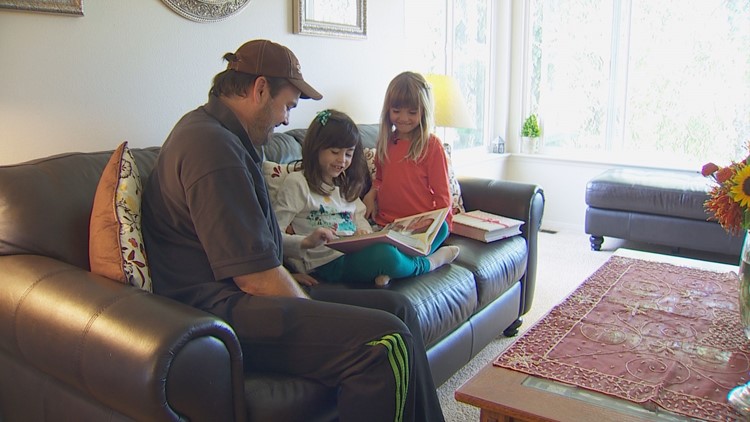Research finds parents who pick up a book and read to the kids for less time than it takes to watch a sitcom will significantly improve their child's vocabulary and learning.
"Sometimes my dad reads to me, and sometimes my mom reads to me. But other days when we get home late they just skip reading," said Redmond Elementary second grader Leah.
Research from the Read Aloud 15 Minutes Campaign, shows only 1-in-10 parents admits to reading to their kids at least 15 minutes a day.
The American Academy of Pediatrics put out a recommendation in 2014 that parents read to children as soon as they're born and every day up until they begin school, and even afterward. Doctor Elizabeth Meade, Assistant Chief of Pediatrics at Swedish Medical Center, says reading rates in children have dropped dramatically over the years -- another reason parents should read to kids early and often.
"The earlier you start that process and make it a fun family activity you do every day, the more they are going to want to do it on their own as they get older," said Meade.
Meade says reading to kids is an important part of their social, emotional, and educational development. She says the most important predictor of school success and high school graduation is reading proficiency by the third grade.
When kids get to school age, they should be reading on their own pretty frequently, but Meade says you should never stop reading to your children because kids tend to listen and comprehend at a higher grade level.
"It helps open new horizons and gets them excited to read chapter books on their own and making that progress themselves," said Meade.
University of Kansas researchers found children from high-income families were exposed to 30 million more words than children from families on public assistance. Some groups are working to narrow that gap by providing children's books to families. For more information on how you can get free books or donate, click here.



